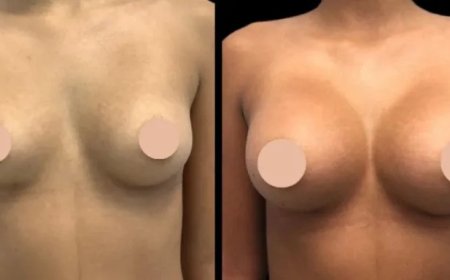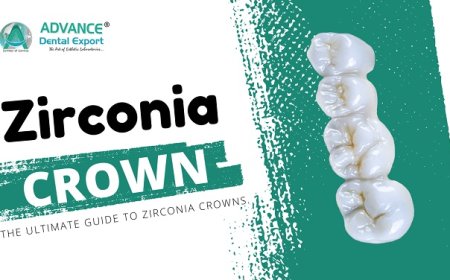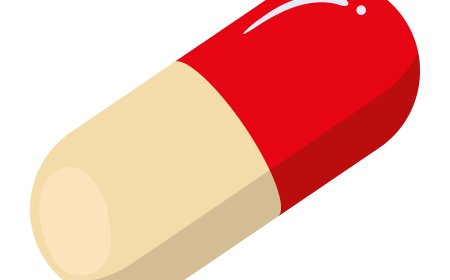How to Care for Your Scalp After a Hair Transplant
Treat your new follicles with care—they're the foundation of your new look and confidence.

If youve recently undergone a hair transplant in Dubai( ????? ????? ?? ???), your journey to fuller, natural-looking hair has only just begun. Post-surgery care is absolutely crucial for protecting your new grafts, promoting healthy growth, and ensuring long-term success. While the procedure itself is important, the real transformation happens during the recovery periodwhen the right aftercare makes all the difference.
Understanding the Healing Process:
What Happens After Surgery:
Immediately after your procedure, youll notice some redness, swelling, and scabbing on the scalp. This is normal and typically resolves within the first week. The newly implanted follicles are delicate during this period, and your actions during these early days directly affect the outcome.
Key Recovery Phases:
-
Day 13: Swelling and sensitivity peak
-
Day 410: Scabbing forms and begins to flake off
-
Week 24: Shedding of transplanted hairs starts (shock loss phase)
-
Months 36: New hair starts growing
-
Months 612: Hair thickens and matures
Immediate Post-Op Care:
Keep the Scalp Clean and Dry:
-
Avoid washing your scalp for the first 48 hours
-
Use only prescribed saline sprays to keep the area hydrated
-
Gently pat dry with a clean towelnever rub
Sleep With Head Elevated:
To reduce swelling and prevent graft disturbance:
-
Sleep with two or more pillows under your head
-
Consider using a travel pillow for better neck support
-
Avoid sleeping on your sides or stomach
Avoid Touching or Scratching:
Even if the scalp feels itchy or tight:
-
Do not scratch or pick at scabs
-
Resist the urge to rub or touch the grafts
-
Wear a clean hat only if advised by your surgeon
Proper Washing Techniques:
When to Start Washing:
Begin washing your hair around the third day post-surgery, as advised by your doctor.
How to Wash Your Scalp:
-
Use a mild, sulfate-free shampoo
-
Mix shampoo with water in a cup for dilution
-
Pour gently over the scalpdo not use direct water pressure
-
Lightly rinse with a cup of wateravoid rubbing
-
Pat dry using a soft, lint-free towel
Medications and Topical Care:
Follow the Prescribed Routine:
-
Take antibiotics to prevent infections
-
Use anti-inflammatory medications for swelling
-
Apply any topical treatments only as directed
Avoid Over-the-Counter Products:
-
Steer clear of minoxidil or other hair products unless approved
-
Avoid sprays, oils, and gels for at least 23 weeks
Things to Avoid After a Hair Transplant:
No Intense Physical Activity:
Avoid workouts, running, or heavy lifting for at least 1014 days. Excessive sweat can lead to infection or dislodge grafts.
Steer Clear of Sun Exposure:
Your scalp is extra sensitive post-surgery:
-
Avoid direct sunlight for at least 3 weeks
-
If you must go out, wear a loose, clean cap
-
Never apply sunscreen directly to the grafts without clearance
Dont Use Heat Styling Tools:
-
No blow drying, straightening, or curling for at least 34 weeks
-
Let your hair air dry to reduce irritation
Diet and Nutrition for Faster Healing:
Nutrients That Promote Growth:
Include these in your diet to boost follicle health:
-
Protein: eggs, chicken, fish, legumes
-
Iron: spinach, lentils, red meat
-
Zinc: nuts, seeds, whole grains
-
Vitamins A, C, and E: fruits, vegetables, nuts
-
Biotin: eggs, almonds, sweet potatoes
Hydration Matters:
Drink plenty of water daily to help your body heal and maintain a healthy scalp environment.
Long-Term Care After Recovery:
Monitor Hair Growth Progress:
-
Photograph your scalp monthly to track changes
-
Speak with your clinic during follow-up appointments
-
Dont panic if growth appears slowthis is normal
Consider PRP Therapy:
Platelet-Rich Plasma therapy can be used post-transplant to improve healing and stimulate hair growth. Ask your surgeon if it's right for you.
Gentle Hair Maintenance Routine:
-
Use soft brushes or wide-tooth combs
-
Avoid harsh chemicals like bleach or dyes for 3+ months
-
Wash hair with lukewarm water only
When to Seek Medical Help:
Contact your clinic immediately if you notice:
-
Excessive pain or bleeding
-
Pus or unusual discharge
-
High fever or signs of infection
-
Persistent itching or burning sensation
Common Mistakes to Avoid:
-
Rushing recovery: Be patient with the healing timeline
-
Skipping medication: Complete your antibiotic course
-
Using unapproved products: Only use what your doctor recommends
-
Returning to work too soon: Take enough rest to avoid stress and fatigue
Final Thoughts:
Caring for your scalp after a hair transplant( ????? ????? ) is just as important as the surgery itself. The steps you take during the healing phase play a critical role in achieving natural, long-lasting results. Whether youve just had your procedure or are planning a hair transplant in Dubai, following expert aftercare guidelines will help you enjoy healthy hair growth and avoid complications. Treat your new follicles with carethey're the foundation of your new look and confidence.



































